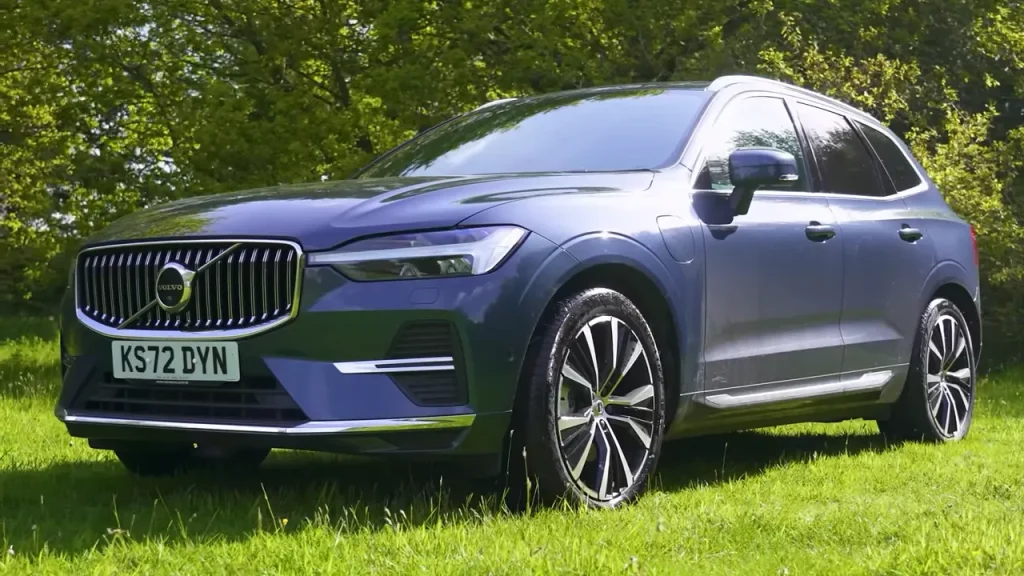Volvo vs Mercedes Reliability[A Detailed Comparison]
When it comes to luxury car brands, Volvo and Mercedes-Benz are often considered top contenders. As potential buyers weigh their options, one crucial factor that stands out is reliability. After all, investing in a vehicle means placing trust in its long-term performance.
In this article, we will delve into the question of Volvo vs Mercedes reliability to help you make an informed decision. We will explore the factors that affect reliability, compare the reputation of these brands, examine reliability ratings and customer feedback, and consider other important factors beyond reliability.
By the end, you will have a clearer understanding of which brand offers better reliability and can confidently choose the right luxury car for your needs.
Comparing the reliability of Volvo and Mercedes-Benz is a subjective matter as it depends on various factors. Both brands have their strengths and weaknesses. It is recommended to research specific models, consider reliability ratings, customer feedback, and factors beyond reliability to determine which brand aligns better with your needs and preferences.
Factors Affecting Reliability
1. Engineering and Manufacturing Quality
The design, engineering, and manufacturing processes employed by a carmaker can greatly impact reliability. Attention to detail, robust construction, and stringent quality control measures contribute to a more reliable vehicle.
2. Component and Parts Sourcing
The quality and reliability of components and parts used in the manufacturing process play a crucial role in overall reliability. Sourcing high-quality parts from reputable suppliers can positively influence a vehicle’s reliability.
3. Technological Advancements and Complexity: The introduction of advanced technologies, such as infotainment systems, safety features, and complex electrical systems, can affect reliability. Increased complexity may lead to more potential points of failure if not implemented and tested thoroughly.
4. Maintenance and Service Practices
Proper maintenance and adherence to service schedules significantly impact a vehicle’s reliability. Regular inspections, timely repairs, and using recommended fluids and parts help prevent issues and keep the vehicle running smoothly.
5. Driving Conditions and Habits
Driving conditions, such as extreme temperatures, rough terrain, or heavy traffic, can put additional strain on a vehicle and impact its reliability. Additionally, aggressive driving habits or lack of proper care can contribute to accelerated wear and potential reliability issues.
6. Owner Care and Maintenance
The way an owner maintains and cares for their vehicle also affects its reliability. Regular cleaning, proper storage, and responsible driving habits contribute to a vehicle’s longevity and reliability.
7. Manufacturer Reputation and Track Record
The reputation of the car manufacturer and its history of producing reliable vehicles can serve as an indicator of potential reliability. Brands known for their reliability and customer satisfaction tend to prioritize quality and reliability in their products.
Reliability Comparison: Volvo vs Mercedes
When comparing the reliability of Volvo and Mercedes-Benz, it is important to consider various factors. While both brands have their own strengths and weaknesses, here is a general overview:
Volvo:
- Volvo has built a reputation for producing reliable vehicles, particularly known for their safety features.
- The brand has consistently scored well in reliability ratings and surveys, with many models receiving above-average reliability scores.
- Volvo’s commitment to quality engineering and robust manufacturing processes contributes to their overall reliability.
Mercedes-Benz:
- Mercedes-Benz is renowned for its luxury and performance-oriented vehicles.
- The brand’s reliability ratings can vary across different models and years, with some models scoring well while others may have occasional issues.
- Advanced technology and complex systems in Mercedes-Benz vehicles may increase the likelihood of potential reliability concerns.

Volvo Reliability
Volvo has established a reputation for manufacturing reliable vehicles over the years. Here are key points to consider regarding Volvo’s reliability:
1. Safety-Focused Engineering
Volvo places a strong emphasis on safety, and this commitment often translates into reliable vehicles. The brand’s focus on building robust structures, implementing advanced safety features, and conducting rigorous testing contributes to overall reliability.
2. Above-Average Reliability Ratings
Volvo consistently receives above-average reliability ratings in various industry assessments. Many Volvo models have earned high marks for dependability, with certain models achieving top scores in specific categories.
3. Longevity and Durability
Volvo cars are known for their longevity and durability. With proper maintenance and care, Volvo vehicles have proven to stand the test of time, providing owners with reliable transportation for many years.
4. Continuous Improvement
Volvo constantly works towards improving the reliability of their vehicles. The brand invests in research and development, incorporating advancements in technology and engineering to enhance overall reliability and address any potential issues.
5. Comprehensive Warranty Coverage
Volvo offers generous warranty coverage, providing peace of mind to owners. The warranty typically includes a comprehensive package that covers various components for an extended period, further showcasing the brand’s confidence in their vehicle’s reliability.

Mercedes Reliability
Mercedes-Benz is a renowned luxury car brand, but its reliability can vary across different models and years. Here are some key aspects to consider regarding Mercedes-Benz reliability:
1. Mixed Reliability Ratings
Mercedes-Benz vehicles have received mixed reliability ratings in various industry assessments. While some models have shown above-average reliability, others may have occasional issues that impact their overall rating.
2. Technology and Complexity
Mercedes-Benz vehicles often feature advanced technology, intricate systems, and sophisticated components. While these advancements enhance the driving experience, they can also introduce potential reliability concerns due to increased complexity.
3. Performance-Oriented Engineering
Mercedes-Benz is known for its performance-oriented approach, focusing on delivering power, handling, and luxury. This emphasis on performance may prioritize certain aspects over absolute reliability in some models.
4. Maintenance and Care
Regular maintenance and diligent care are crucial for maintaining the reliability of Mercedes-Benz vehicles. Adhering to recommended service intervals, using genuine parts, and addressing any issues promptly can help ensure optimal performance and reliability.
5. Owner Satisfaction
Despite variations in reliability, many Mercedes-Benz owners express satisfaction with their vehicles. The brand’s commitment to luxury, cutting-edge technology, and driving experience often outweigh occasional reliability concerns for these owners.

Factors to Consider Beyond Reliability
When comparing Volvo and Mercedes-Benz, there are several factors to consider beyond reliability that can influence your purchasing decision. These factors include:
Performance and Driving Experience
Evaluate the driving dynamics, engine options, and overall performance characteristics of each brand. Consider whether you prioritize a more sporty, dynamic driving experience or a comfortable and refined ride.
Design and Luxury Features
Examine the design aesthetics, interior quality, and available luxury features offered by both brands. Determine which brand aligns with your personal style and offers the level of luxury and technology you desire.
Ownership and Maintenance Costs
Consider the long-term ownership costs, including maintenance, repairs, and insurance. Research the average costs of parts and services for each brand and factor in potential differences in resale value.
Brand Reputation and Image
Assess the brand reputation and image associated with Volvo and Mercedes-Benz. Consider factors such as brand heritage, perception of quality, and how each brand aligns with your own values and preferences.
Available Models and Features
Evaluate the range of models and available features within each brand’s lineup. Consider whether they offer the specific body style, size, and features that suit your needs and preferences.
Safety Features
Both Volvo and Mercedes-Benz are known for their emphasis on safety. Compare the safety features and technologies offered by each brand to determine which aligns better with your safety requirements.
Test Drive Experience
Schedule test drives of specific models from both brands to get a firsthand experience of their performance, comfort, handling, and overall feel. This will help you gauge which brand resonates with you on a personal level.
FAQ:
Q: Are Volvo vehicles more reliable than Mercedes-Benz vehicles?
A: Reliability can vary between specific models and even individual vehicles within each brand. While Volvo has built a reputation for producing reliable vehicles, Mercedes-Benz reliability ratings can vary. It is recommended to research specific models, consider reliability ratings, customer feedback, and other factors to determine which brand may be more reliable for your needs.
Q: Are there any specific Volvo or Mercedes-Benz models known for their reliability?
A: Both Volvo and Mercedes-Benz have models that are known for their reliability. For Volvo, models like the Volvo XC60, Volvo XC90, and Volvo S60 have received positive reliability ratings. Mercedes-Benz models like the Mercedes C-Class, Mercedes E-Class, and Mercedes GLC have also been recognized for their reliability. However, it’s important to consider that reliability can vary even within specific models and model years.
Q: Do Volvo and Mercedes-Benz offer warranty coverage for their vehicles?
A: Yes, both Volvo and Mercedes-Benz offer warranty coverage for their vehicles. The specific terms and duration of the warranty may vary depending on the model and region. It is advisable to review the warranty details provided by each brand to understand the coverage and any limitations.
Q: Can regular maintenance and servicing improve the reliability of Volvo and Mercedes-Benz vehicles?
A: Yes, regular maintenance and servicing are essential for maintaining the reliability of any vehicle, including those from Volvo and Mercedes-Benz. Adhering to recommended service intervals, using genuine parts, and addressing any issues promptly can help ensure optimal performance and reliability.
Q: Should I solely rely on reliability ratings when choosing between Volvo and Mercedes-Benz?
A: Reliability ratings should be considered alongside other factors such as performance, design, ownership costs, and personal preferences. While reliability is important, it is essential to evaluate the overall package that each brand offers and how it aligns with your specific requirements and preferences.



![What Does B Stand for in a Car? [Full Guide]](https://automhelp.com/wp-content/uploads/2024/05/What-Does-B-Stand-for-in-a-Car-768x512.webp)
![How Much Does It Cost to Buff a Car? [$100 to $300]](https://automhelp.com/wp-content/uploads/2024/09/Screenshot-2024-09-18-110236.webp)


![Homemade Traction Mats [Unlock Your Vehicle’s Grip]](https://automhelp.com/wp-content/uploads/2024/03/Homemade-Traction-Mats.webp)